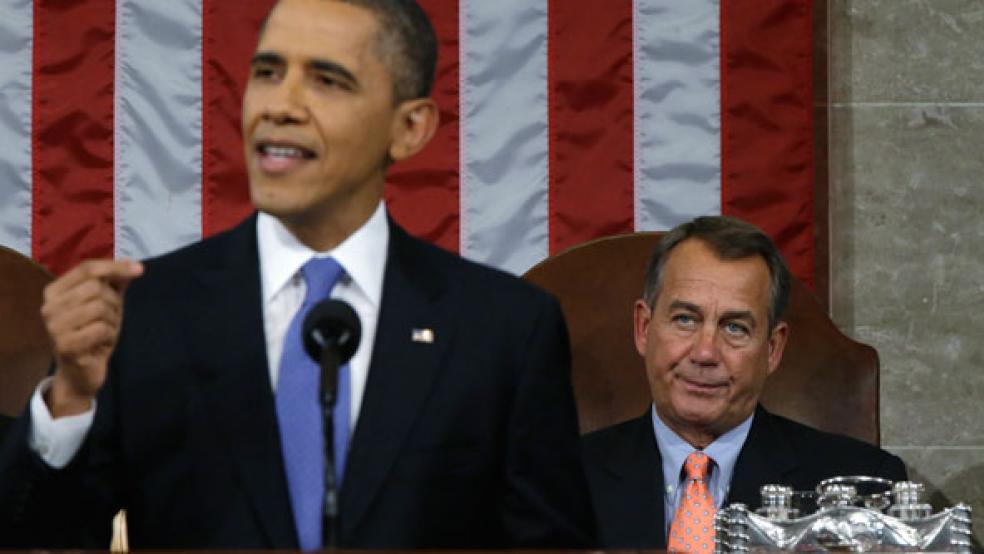President Obama’s minimum wage hike is dead on arrival.
House Speaker John Boehner minced no words at a Wednesday press briefing. The Ohio Republican is dead set against raising the minimum wage to $9 an hour from $7.25 an hour as Obama called for during Tuesday night’s State of the Union address.
There was no wiggle room in what the head of the GOP caucus said.
“I’ve been dealing with the minimum wage issue for the last 28 years that I’ve been in elected office,” Boehner said. “And when you raise the price of employment, guess what happens? You get less of it. At a time when the American people are still asking the question, ‘Where are the jobs?’ why would we want to make it harder for small employers to hire people? Listen, I’ve got 11 brothers and sisters on every rung of the economic ladder. I know about this issue as much as anybody in this town. And what happens when you take away the first couple of rungs on the economic ladder is you make it harder for people to get on the ladder. Our goal is to get people on the ladder and help them climb that ladder, so that they can live the American dream.”
If you take the ladder metaphor a bit further, Obama told the county last night that too many Americans are barely clinging to that bottom rung, working full-time but living in poverty and in need of government aid. It’s a slightly more complicated argument than that, as less than 2 percent of workers over the age of 25 earn minimum wage so the overall impact on the economy is less pronounced.

The progressive Economic Policy Institute estimates that the proposed increase would add on average $1,047 to the annual paychecks of 21 million workers. But the question is how much of those gains would translate into smaller welfare rolls as many programs designed for the poor increasingly support Americans.
Boehner’s point is that job opportunities for the least skilled workers would disappear if employers got socked with those additional costs. And this is a basic difference in worldview between the president and GOP lawmakers.
Alan Krueger, chairman of the White House Council of Economic Advisers, led a groundbreaking study while at Princeton University that found in 1992 that a minimum wage bump did not hurt employment at New Jersey fast food restaurants.
Those findings have been disputed by economists such as Gary Becker at the University of Chicago and David Neumark at the University of California-Irvine, who both claim that the traditional Econ 101 perspective articulated by Boehner still holds.




